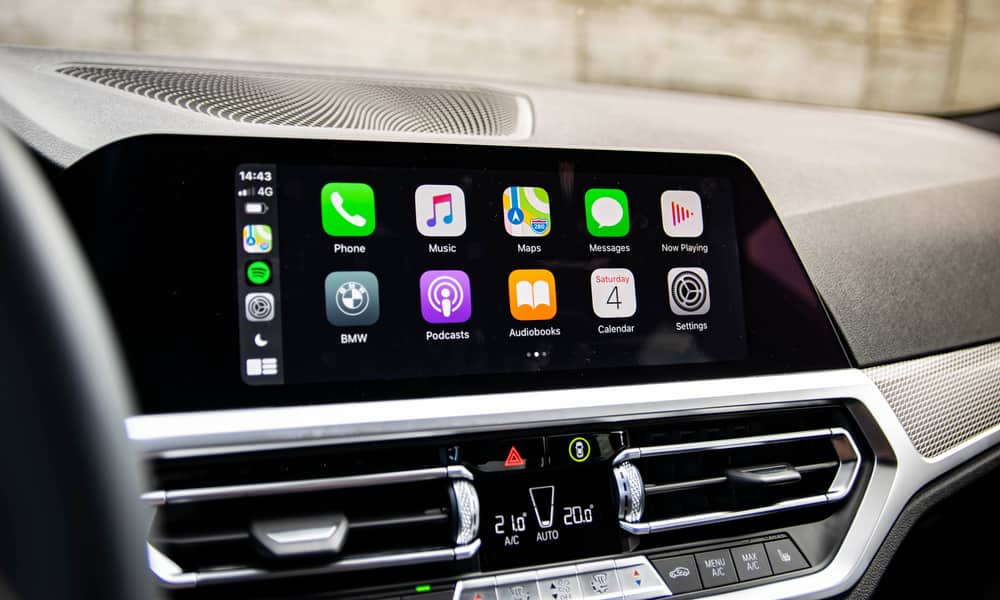Why This Year’s BMWs Are Being Sold without Apple CarPlay or Android Auto
 Credit: Gabriel Nica / Shutterstock
Credit: Gabriel Nica / Shutterstock
Toggle Dark Mode
If you’ve decided to pick up a shiny new BMW this year, you may be surprised to discover that it likely won’t include CarPlay support when you roll off the lot.
Thanks to the global chip shortage that’s been affecting everything from consumer electronics to cars, BMW has found itself behind the curve in getting the necessary chips ready for its infotainment systems.
According to Automotive News Europe, the shortage of available chips required the automaker to switch suppliers. However, the software that drives the in-vehicle connectivity system isn’t compatible with the new chips.
This doesn’t just affect CarPlay; features such as Android Auto and even general Wi-Fi connectivity will also be unavailable in select BMW models at launch.
To be clear, BMW isn’t dropping CarPlay entirely. After all, it was one of the first car manufacturers to embrace the technology in 2016, and it’s still one of Apple’s closest partners when it comes to features like Digital Car Key.
Instead, BMW will be offering customers an over-the-air (OTA) software update that it told Automotive News should arrive “by the end of June at the latest.”
The chips built into these cars in the first four months of this year need updated software in order to be fully functional and offer Apple CarPlay/Android Auto and Wi-Fi capability.Statement from BMW
Although the company didn’t say which models or regions are affected, numerous customers from the U.S., Italy, Spain, the U.K., and France have reported that their new BMWs have been delivered without the functionality. Affected models are said to include code 6P1 in their specifications.
BMW has embraced the Apple ecosystem more eagerly than most carmakers, with the possible exception of Porsche. It was the first to offer wireless CarPlay on its vehicles in 2017. That put it two to three years ahead of anybody else, and it wasn’t until last year that wireless CarPlay expanded to most other carmakers, albeit on limited models.
Similarly, BMW was Apple’s launch partner for Car Key in iOS 13.6 and embraced Ultra Wideband Car Key a year before other automakers have even begun to get in the game.
In 2019, BMW toyed with the idea of an $80/year CarPlay subscription, but the idea turned out to be wildly unpopular, and the company scrapped those plans only a few months later. The OTA software update for CarPlay on this year’s models will be offered at no additional charge.
Still, the chip shortage isn’t unique to BMW. This is a problem that carmakers around the world are wrestling with as they struggle to keep up with the demand for new vehicles. Automotive News also reports that BMW has stopped offering a manual transmission option for its Mini range, and Mercedes-Benz has been forced to build cars without some parts, planning to retrofit them later.
Sadly, the chip shortage is expected to continue throughout 2022 and likely well beyond. It’s gotten so bad that now there aren’t even enough chips to power the machines that make the other chips. Intel’s CEO says the shortages will likely last into 2024 because of this, so it’s safe to say we haven’t heard the last of these challenges in the electronics and automotive industry.







